We’re delighted to offer a selection of latest releases from our core subjects of Anthropology, Cultural Studies, Genocide Studies, History, Medical Anthropology, Museum Studies, Social Anthropology, Sociology, and Urban Studies, along with a selection of our New in Paperback titles.
We are especially excited to announce the publication of New Imaginaries, edited and translated by Marian J. Rubchak.
“Instead of pointing out how ‘different’ Ukrainian feminism/gender studies/women’s studies is from ‘Western’ (or other) feminisms, this volume has potential to contribute to our understanding of the exciting and complex ways that feminist thought travels as one of the most important ‘ideascapes’ (à la Appadurai) of our time.” · Sarah D. Phillips, Indiana University
———————————————————————————————————————————–
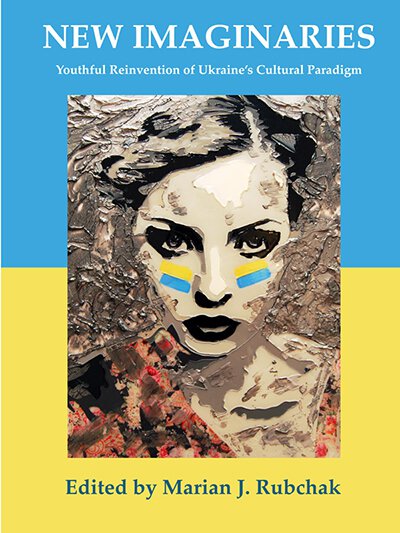 NEW IMAGINARIES
NEW IMAGINARIES
Youthful Reinvention of Ukraine’s Cultural Paradigm
Edited and Translated by Marian J. Rubchak
Foreword Martha Kichorowska Kebalo
Having been spared the constraints imposed on intellectual discourse by the totalitarian regime of the past, young Ukrainian scholars now engage with many Western ideological theories and practices in an atmosphere of intellectual freedom and uncensored scholarship. Displacing the Soviet legacy of prescribed thought and practices, this volume’s female contributors have infused their work with Western elements, although vestiges of Soviet-style ideas, research methodology, and writing linger. The result is the articulation of a “New Imaginaries” — neither Soviet nor Western — that offers a unique approach to the study of gender by presenting a portrait of Ukrainian society as seen through the eyes of a new generation of feminist scholars.
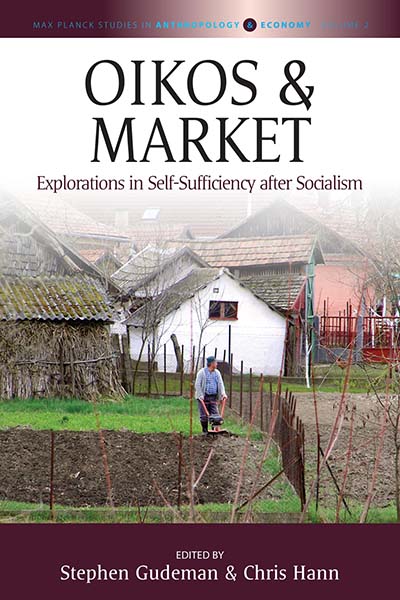 OIKOS AND MARKET
OIKOS AND MARKET
Explorations in Self-Sufficiency after Socialism
Edited by Stephen Gudeman and Chris Hann
Volume 2, Max Planck Studies in Anthropology and Economy
Self-sufficiency of the house is practiced in many parts of the world but ignored in economic theory, just as socialist collectivization is assumed to have brought household self-sufficiency to an end. The ideals of self-sufficiency, however, continue to shape economic activity in a wide range of postsocialist settings. This volume’s six comparative studies of postsocialist villages in Eastern Europe and Asia illuminate the enduring importance of the house economy, which is based not on the market but on the order of the house. These formations show that economies depend not only on the macro institutions of markets and states but also on the micro institutions of families, communities, and house economies, often in an uneasy relationship.
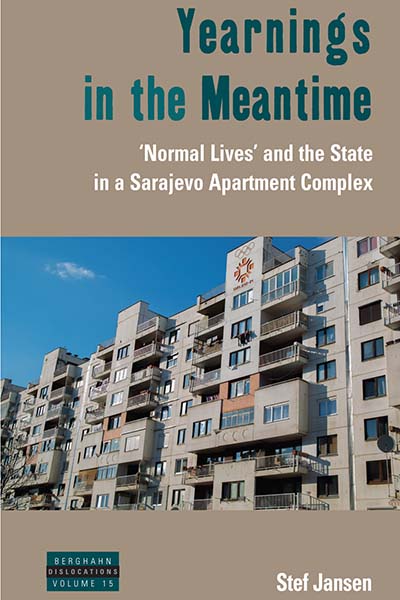 YEARNINGS IN THE MEANTIME
YEARNINGS IN THE MEANTIME
‘Normal Lives’ and the State in a Sarajevo Apartment Complex
Stef Jansen
Volume 15, Dislocations
Shortly after the book’s protagonists moved into their apartment complex in Sarajevo, they, like many others, were overcome by the 1992-1995 war and the disintegration of socialist Yugoslavia More than a decade later, in post-war Bosnia and Herzegovina, they felt they were collectively stuck in a time warp where nothing seemed to be as it should be. Starting from everyday concerns, this book paints a compassionate yet critical portrait of people’s sense that they were in limbo, trapped in a seemingly endless “Meantime.” Ethnographically investigating yearnings for “normal lives” in the European semi-periphery, it proposes fresh analytical tools to explore how the time and place in which we are caught shape our hopes and fears.
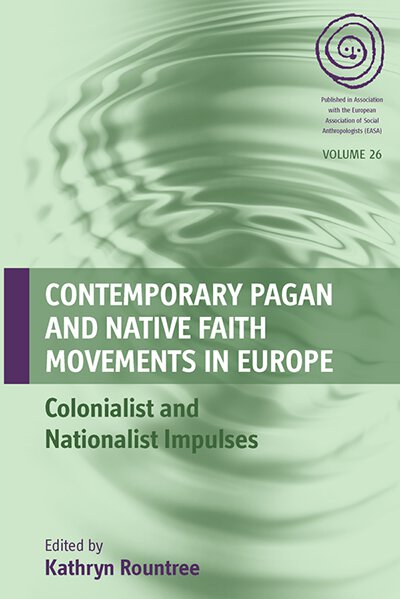 CONTEMPORARY PAGAN AND NATIVE FAITH MOVEMENTS IN EUROPE
CONTEMPORARY PAGAN AND NATIVE FAITH MOVEMENTS IN EUROPE
Colonialist and Nationalist Impulses
Edited by Kathryn Rountree
Volume 26, EASA Series
Pagan and Native Faith movements have sprung up across Europe in recent decades, yet little has been published about them compared with their British and American counterparts. Though all such movements valorize human relationships with nature and embrace polytheistic cosmologies, practitioners’ beliefs, practices, goals, and agendas are diverse. Often side by side are groups trying to reconstruct ancient religions motivated by ethnonationalism—especially in post-Soviet societies—and others attracted by imported traditions, such as Wicca, Druidry, Goddess Spirituality, and Core Shamanism. Drawing on ethnographic cases, contributors explore the interplay of neo-nationalistic and neo-colonialist impulses in contemporary Paganism, showing how these impulses play out, intersect, collide, and transform.
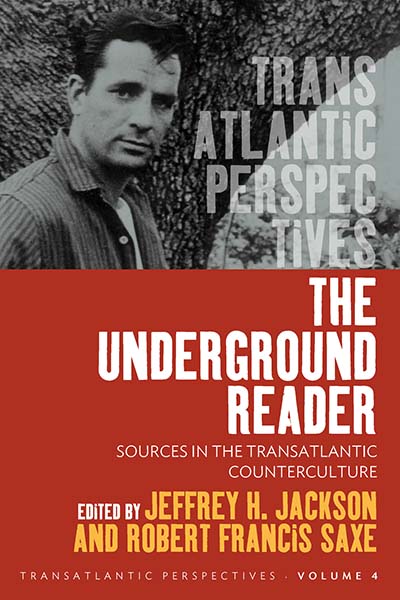 THE UNDERGROUND READER
THE UNDERGROUND READER
Sources in the Trans-Atlantic Counterculture
Jeffrey H. Jackson and Robert Francis Saxe
Volume 4, Transatlantic Perspectives
Every society has rebels, outlaws, troublemakers, and deviants. This collection of primary sources takes readers on a journey through the intellectual and cultural history of the “underground” in the nineteenth and twentieth centuries. It demonstrates how thinkers in the US and Europe have engaged in an ongoing trans-Atlantic dialogue, inspiring one another to challenge the norms of Western society. Through ideas, artistic expression, and cultural practices, these thinkers radically defied the societies of which they were part. The readings chart the historical evolution of challenges to mainstream values — some of which have themselves become mainstream — from the beginning of the nineteenth century to the present.
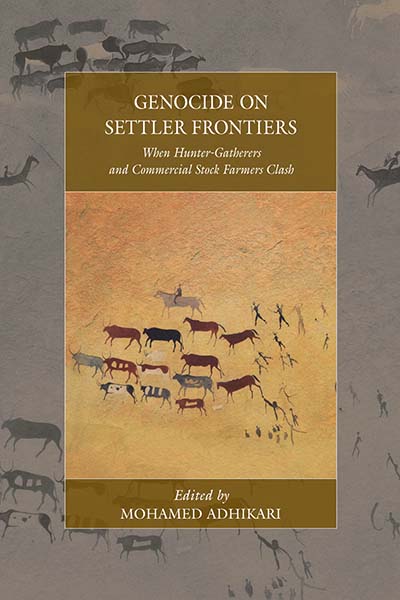 GENOCIDE ON SETTLER FRONTIERS
GENOCIDE ON SETTLER FRONTIERS
When Hunter-Gatherers and Commercial Stock Farmers Clash
Edited by Mohamed Adhikari
Volume 22, War and Genocide
European colonial conquest included many instances of indigenous peoples being exterminated. Cases where invading commercial stock farmers clashed with hunter-gatherers were particularly destructive, often resulting in a degree of dispossession and slaughter that destroyed the ability of these societies to reproduce themselves. The experience of aboriginal peoples in the settler colonies of southern Africa, Australia, North America, and Latin America bears this out. The frequency with which encounters of this kind resulted in the annihilation of forager societies raises the question of whether these conflicts were inherently genocidal, an issue not yet addressed by scholars in a systematic way.
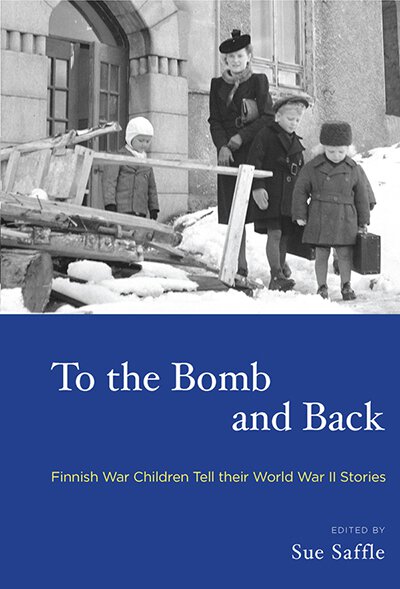 TO THE BOMB AND BACK
TO THE BOMB AND BACK
Finnish War Children Tell Their World War II Stories
Edited by Sue Saffle
Foreword by Kai Rosnell
Between 1939 and 1945, some 80,000 Finnish children were sent to Sweden, Denmark, and elsewhere, ostensibly to protect them from danger while their nation’s soldiers fought superior Soviet and German forces. This was the largest of all of World War II children’s transports, and although acknowledged today as “a great social-historical mistake,” it has received surprisingly little attention. This is the first English-language account of Finland’s war children and their experiences, told through the survivors’ own words. Supported by an extensive introduction, a bibliography of secondary sources, and over two dozen photographs, this book testifies to the often-lifelong traumas endured by youthful survivors of war.
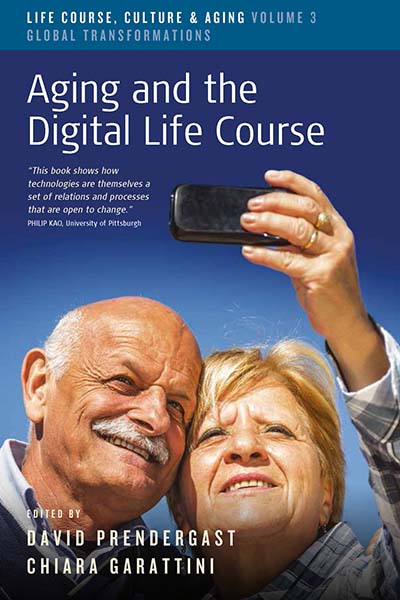 AGING AND THE DIGITAL LIFE COURSE
AGING AND THE DIGITAL LIFE COURSE
Edited by David Prendergast and Chiara Garattini
Volume 3, Life Course, Culture and Aging: Global Transformations
Across the life course, new forms of community, ways of keeping in contact, and practices for engaging in work, healthcare, retail, learning and leisure are evolving rapidly. Breaking new ground in the study of technology and aging, this book examines how developments in smart phones, the internet, cloud computing, and online social networking are redefining experiences and expectations around growing older in the twenty-first century. Drawing on contributions from leading commentators and researchers across the world, this book explores key themes such as caregiving, the use of social media, robotics, chronic disease and dementia management, gaming, migration, and data inheritance, to name a few.
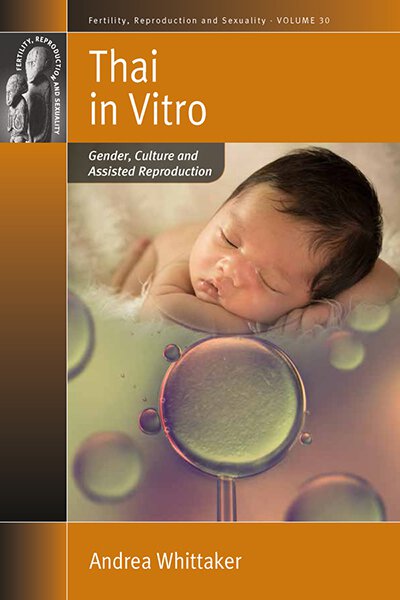 THAI IN VITRO
THAI IN VITRO
Gender, Culture and Assisted Reproduction
Andrea Whittaker
Volume 30, Fertility, Reproduction and Sexuality
In Thailand, infertility remains a source of stigma for those couples that combine a range of religious, traditional and high-tech interventions in their quest for a child. This book explores this experience of infertility and the pursuit and use of assisted reproductive technologies by Thai couples. Though using assisted reproductive technologies is becoming more acceptable in Thai society, access to and choices about such technologies are mediated by differences in class position. These stories of women and men in private and public infertility clinics reveal how local social and moral sensitivities influence the practices and meanings of treatment.
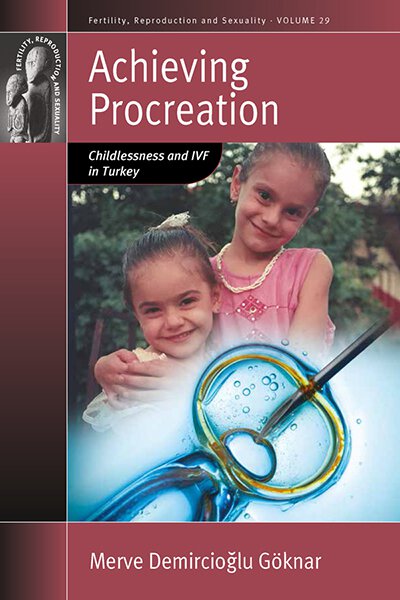 ACHIEVING PROCREATION
ACHIEVING PROCREATION
Childlessness and IVF in Turkey
Merve Demircioğlu Göknar
Volume 29, Fertility, Reproduction and Sexuality
Managing social relationships for childless couples in pro-natalist societies can be a difficult art to master, and may even become an issue of belonging for both men and women. With ethnographic research gathered from two IVF clinics and in two villages in northwestern Turkey, this book explores infertility and assisted reproductive technologies within a secular Muslim population. Göknar investigates the experience of infertility through various perspectives, such as the importance of having a child for women, the mediating role of religion, the power dynamics in same-gender relationships, and the impact of manhood ideologies on the decision for — or against — having IVF.
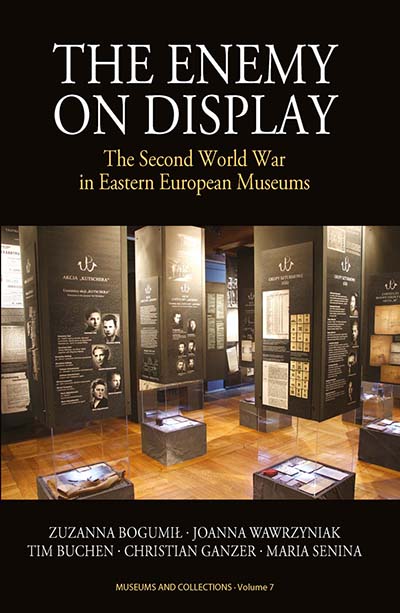 THE ENEMY ON DISPLAY
THE ENEMY ON DISPLAY
The Second World War in Eastern European Museums
Zuzanna Bogumił, Joanna Wawrzyniak, Tim Buchen, Christian Ganzer and Maria Senina
Volume 7, Museums and Collections
Eastern European museums represent traumatic events of World War II, such as the Siege of Leningrad, the Warsaw Uprisings, and the Bombardment of Dresden, in ways that depict the enemy in particular ways. This image results from the interweaving of historical representations, cultural stereotypes and beliefs, political discourses, and the dynamics of exhibition narratives. This book presents a useful methodology for examining museum images and provides a critical analysis of the role historical museums play in the contemporary world. As the catastrophes of World War II still exert an enormous influence on the national identities of Russians, Poles, and Germans, museum exhibits can thus play an important role in this process.
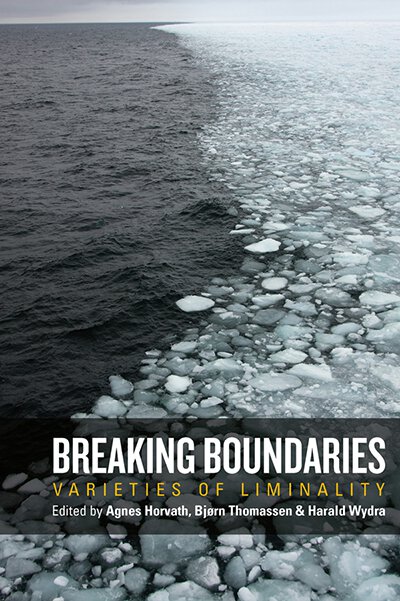 BREAKING BOUNDARIES
BREAKING BOUNDARIES
Varieties of Liminality
Edited by Agnes Horvath, Bjørn Thomassen, and Harald Wydra
Liminality has the potential to be a leading paradigm for understanding transformation in a globalizing world. As a fundamental human experience, liminality transmits cultural practices, codes, rituals, and meanings in situations that fall between defined structures and have uncertain outcomes. Based on case studies of some of the most important crises in history, society, and politics, this volume explores the methodological range and applicability of the concept to a variety of concrete social and political problems.
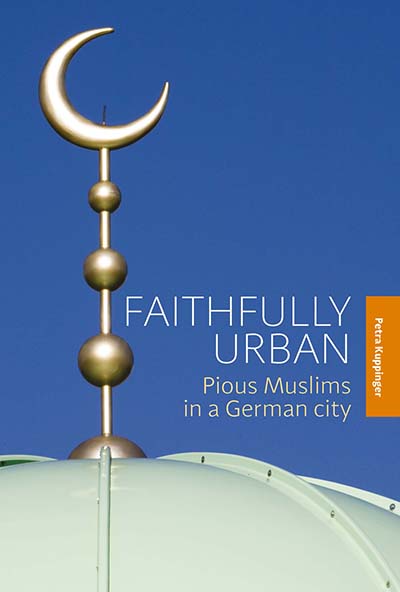 FAITHFULLY URBAN
FAITHFULLY URBAN
Pious Muslims in a German City
Petra Kuppinger
In the southern German city of Stuttgart lives a pious Muslim population that has merged with the local population to create a meaningful shared existence. In this ethnographic account, the author introduces and examines the lives of ordinary residents, neighborhoods, and mosque communities to analyze moments and spaces where Muslims and non-Muslims engage with each other and accommodate their respective needs. These accounts show that even in the face of resentment and discrimination, this pious population has indeed become an integral part of the urban community.
——————————————-
New in Paperback
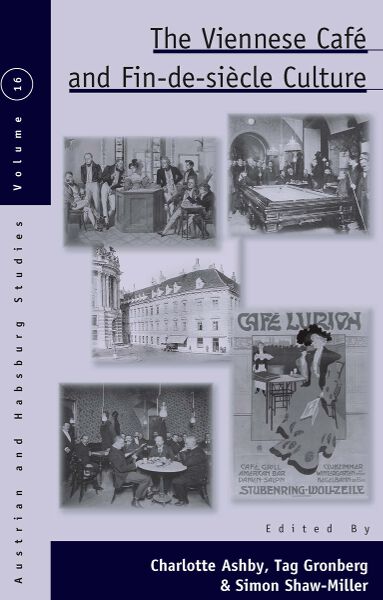 THE VIENNESE CAFÉ AND FIN-DE-SIÈCLE CULTURE
THE VIENNESE CAFÉ AND FIN-DE-SIÈCLE CULTURE
Edited by Charlotte Ashby, Tag Gronberg and Simon Shaw-Miller
Volume 16, Austrian and Habsburg Studies
“This volume forms a convincing starting point, in which the Viennese café is revealed as a key site of fin-de-siècle modernity and of several modern urban identities. One cannot but hope for a sequel — that is, an even more extensive volume but one that is just as carefully prepared with beautiful illustrations and very extensive footnotes.” · Austrian Studies
 TERRITORIAL REVISIONISM AND THE ALLIES OF GERMANY IN THE SECOND WORLD WAR
TERRITORIAL REVISIONISM AND THE ALLIES OF GERMANY IN THE SECOND WORLD WAR
Goals, Expectations, Practices
Edited by Marina Cattaruzza, Stefan Dyroff & Dieter Langewiesche
Volume 15, Austrian and Habsburg Studies
“Enhanced with the inclusion of a List of Abbreviations, Maps, Notes on Contributors, a Select Bibliography, and a comprehensive Index, [this volume] is an original body of impressive scholarship and a highly recommended addition to academic library World War II era German History reference collections and Central European History supplemental reading lists.” · World History Shelf
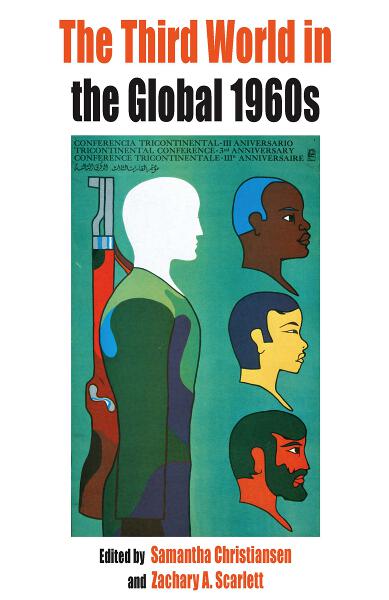 THE THIRD WORLD IN THE GLOBAL 1960S
THE THIRD WORLD IN THE GLOBAL 1960S
Edited by Samantha Christiansen and Zachary Scarlett
Foreword by Arif Dirlik
Volume 8, Protest, Culture & Society
“Historians of the burgeoning field of the global 1960s will welcome the contributions the volume makes.” · Choice
“The wide ranging analytical span offered by this volume, is most gratifying, resulting in a truly successful global historical undertaking.” · Neue Politische Literatur
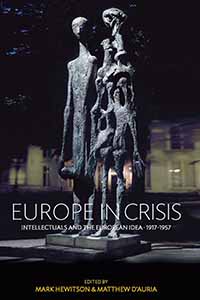 EUROPE IN CRISIS
EUROPE IN CRISIS
Intellectuals and the European Idea, 1917-1957
Edited by Mark Hewitson and Matthew D’Auria
“Overall…this collection offers a broad spectrum of intellectual historical research on Europe. It therefore does not only appeal to historians who are working on the history of images of Europe specially in the first half of the 20th century but also to all those who are interested in approaches and methods of Anglo-American intellectual historians.” · H-Soz-u-Kult
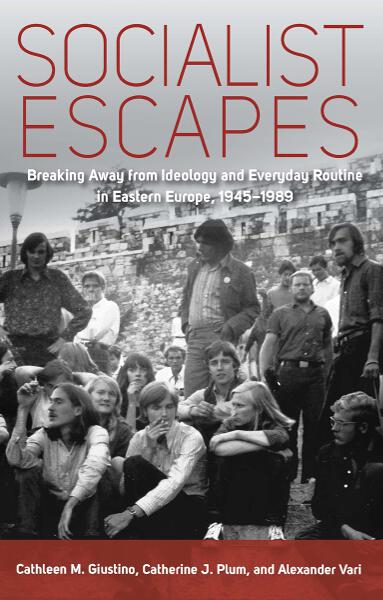 SOCIALIST ESCAPES
SOCIALIST ESCAPES
Breaking Away from Ideology and Everyday Routine in Eastern Europe, 1945-1989
Edited by Cathleen M. Giustino, Catherine J. Plum, and Alexander Vari
“This engaging, uniformly well-written and remarkably coherent edited volume uses the category of ‘socialist escapes’ as a way to explore the challenges, pleasure and paradoxes of life under Communism in Eastern Europe.” · Slavonic & East European Review
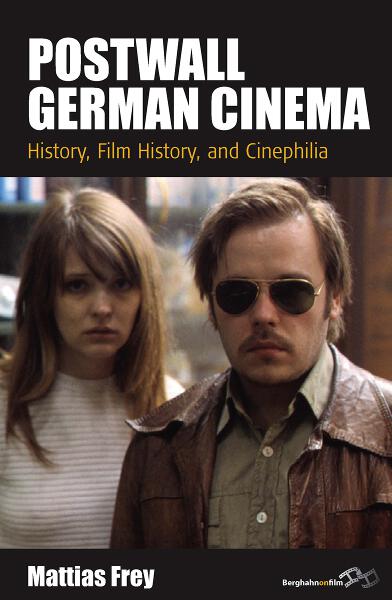 POSTWALL GERMAN CINEMA
POSTWALL GERMAN CINEMA
History, Film History and Cinephilia
Mattias Frey
Volume 14, Film Europa
“…his highly original contribution to historiography reconsiders the ‘historical turn’ in recent German cinema, framing it as also indicative of a cinephilic reworking of the history of the cinema, effectively remediating previous filmic representations of history.” · Seminar: A Journal of Germanic Studies
